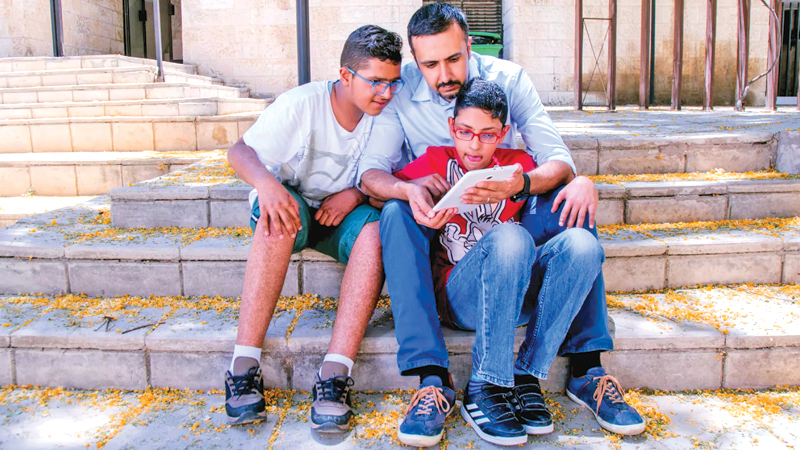Personally, I get “decision fatigue” and can put off making a decision. So I try to remember the last time others put me in the position of wondering their decision and often that will motivate me to respond more promptly!
Train teenagers to be assertive in communication
One of the best gifts you can give your kid is to help them learn how to be assertive.
We all have a communication style. So first we need to learn what good communication – being assertive- looks like. And then we need to figure out which end of the communication spectrum we tend to lean toward, so we can counter balance our natural tendency!
If your teenager teens to be more outspoken, they may struggle with being aggressive at times with their words or actions. Your teenager may need to choose their words more carefully and to wait a period of time before responding to a text that made them very angry. This moves their natural style (aggressive) closer to the healthier form of assertive communication.
Teach your teenager to use “I statements”
“I Statements” are simply statements that start off with the word “I”. They are a great way to stay on task with being assertive, not veering off toward aggressive or passive style of communication.
When we begin a conversation or request with the word “I” we keep it more specific and less threatening to our listener. If I tell my teenager that “I felt disrespected when I came home and found all the trash and dishes you and your friends left in the living room,” I am keeping the focus on how I was affected by their actions.
My teenager is more likely to hear my words than if I said to them,”You and your friends are complete slobs and never clean up after yourselves.
Help your teenager rephrase what they say and try to use “I Statements” instead of starting off with the word you!
Help teenagers develop solutions
When I was a flight attendant, I was fresh in my twenties, and I remember a powerful lesson one pilot taught me. Offer a solution when you bring up a problem! If I called up to the cockpit with a problem, offer 2 solutions to the problem that from my unique perspective in the cabin, would be helpful.
Especially at home, when you and your teen are having a disagreement, teens don’t get to simply shoot down your solution. If they don’t like that you are giving them a strict bedtime since they can’t get up in the morning then they better develop a helpful idea!
Turn the table on your teenager and expect them to help solve the problem. This will change the argument and make your teenager a much more effective communicator.
Learn how to listen for feelings
When someone starts accusing you or blaming you for something it is natural to jump in to defend yourself. Even as an adult, most of us are quick to defend and slow to listen.
Teach your teenager how to begin listening for other’s feelings by repeating their feelings to them. In the middle of a disagreement, try to slow down and repeat what you hear them saying. For example, “I hear you saying that you feel disappointed that I wouldn’t let you go to that event with your friends.”
Allowing another person to feel heard and understood is powerful.
Help your teenager admit when they are wrong
Not my favourite thing to do, just saying! But if we want to our teenagers to admit then they are wrong then we are going to need to go first. So take the first step. If you blow it then let your teen know it.
If your teenager was wrong or made a big mistake, help them own up to it. Don’t throw their failure in their face, but also don’t allow your teen to act like it was someone else’s fault. Make sure your teenager owns up to their part of the mistake, and then tell them how mature you think that makes them!
Teach teens to be problem focused in conflict
Keep the focus on the problem and not on attacking one another. Disagreements can get real personal, real fast! But if we focus on the problem at hand then we are less likely to make it personal.
We are definitely losing the art of the disagreement. Even as being “open-minded” is encouraged everywhere, actually learning to disagree is being taught less. Show your teenagers how it’s possible to disagree with someone while still maintaining the relationship.
Remember and use a person’s name
Isn’t that the best thing when you start a new job, someone comes up to you a few weeks later and remembers your name?
Now I am the worst at names. I’ve gotten better. But I do realize that it is hard. I make much more of an effort now because I realize how effective it is as a communication tool. People love to hear their name!
Encourage your teenager to learn their teacher’s and coaches’ names (yes, teens can actual go a whole year and never learn their name!). When you all our out and about and see friends and acquaintances, call them by name whenever you can.
Show your teenager how a simple thing like remembering a person’s name can set them apart from the crowd.









